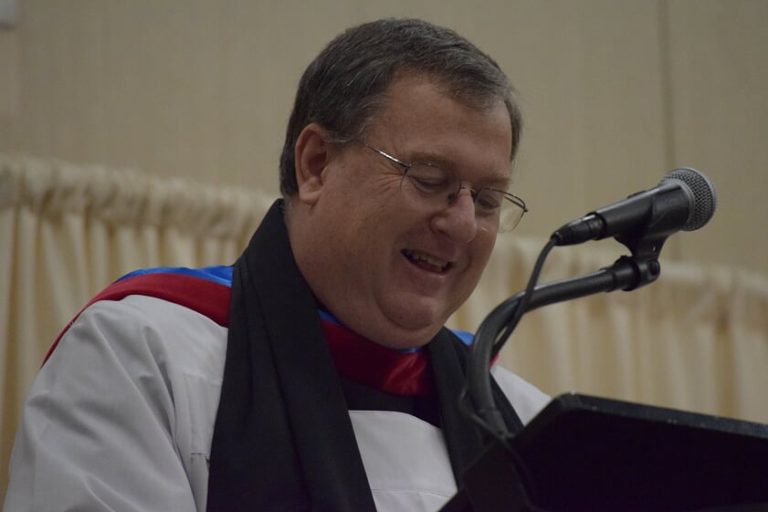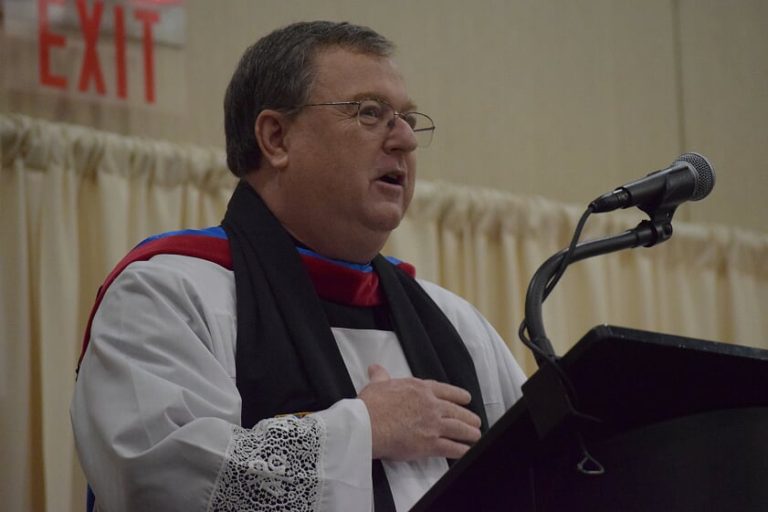FIRST SUNDAY AFTER EASTER
TEXT: SAINT JOHN 20: 19 – 23
A week ago we celebrated the resurrection. There comes a time, however, when we must live the resurrection. That is not always easy. There are days when we prefer to just stay in bed, pull the covers over our head, and close out the world. Some days it seems easier and safer to lock the doors of our house and avoid the circumstances and people of our lives. Some times we just want to run away, hide, and not deal with the reality of our lives.
Every time, however, we shut the doors of our life, our mind, or our heart we imprison ourselves. For every person, event, or idea we lock out, regardless of the reason, we lock ourselves in. That is what has happened to the disciples in today’s gospel. It is Easter evening, the first day of the week, the day of the resurrection, the day they saw the empty tomb, the day Mary Magdalene announced, “I have seen the Lord.” The disciples are gathered in the house, the doors are locked with fear. A week later they are in the same place. It is the same house, the same walls, the same closed doors, the same locks. Nothing much has changed.
Jesus’ tomb is open and empty but the disciples’ house is closed and the doors locked tight. The house has become their tomb. Jesus is on the loose and the disciples are bound in fear. The disciples have separated themselves and their lives from the reality of Jesus’ resurrection. Their doors of faith have been closed. They have shut their eyes to the reality that life is now different. They have locked out Mary Magdalene’s words of faith, hope, and love. They left the empty tomb of Jesus and entered their own tombs of fear, doubt, and blindness. The locked doors have become the great stone sealing their
tomb. They have locked themselves in. The doors of our tombs are always locked from the inside. All this, and it has been only one week.
I wonder, one week after Easter, is our life different? Where are we living? In the freedom and joy of resurrection or behind locked doors. How is our life different after Easter? And if it is not what are the locked doors of our life, our heart, and our mind?
When Saint John describes the house, the doors, and the locks he is speaking about more than a physical house with walls, doors on hinges, and deadbolts. He is describing the interior condition of the disciples. The locked places of our lives are always more about what is going on inside of us than around us.
What are the closed places of your life? What keeps you in the tomb? Maybe, it is fear. Maybe it is questions, disbelief, or the conditions we place on our faith. Perhaps it is sorrow or loss. Maybe the wounds are so deep it does not seem worth the risk to step outside. For others it may be anger and resentment. Some seem unable or unwilling to open up to new ideas, possibilities, and change.
Jesus is always entering the locked places of our lives. He comes eastering in us. Unexpected, uninvited, and sometimes even unwanted he steps into our closed lives, closed hearts, and closed minds. Standing among us he offers peace and breathes new life into us. He does not open the door for us but he gives us all we need so that we might open our doors to a new life, a new creation, and new way of being. This is happening all the time.
Regardless of the circumstances Jesus shows up bringing peace, offering peace, embodying peace. Regardless of the circumstances Jesus shows up bringing life, offering life, embodying life. Life and peace are resurrection reality. They do not necessarily change the circumstances of our life and world. Tornados will still form, the
hungry still need to be fed, and loved ones will die. The life and peace of Jesus’ resurrection enable us to meet and live through those circumstances. He gives us his peace, his breath, his life, and then sends us out. We are free to unlock the doors of our lives and step outside into his life.


